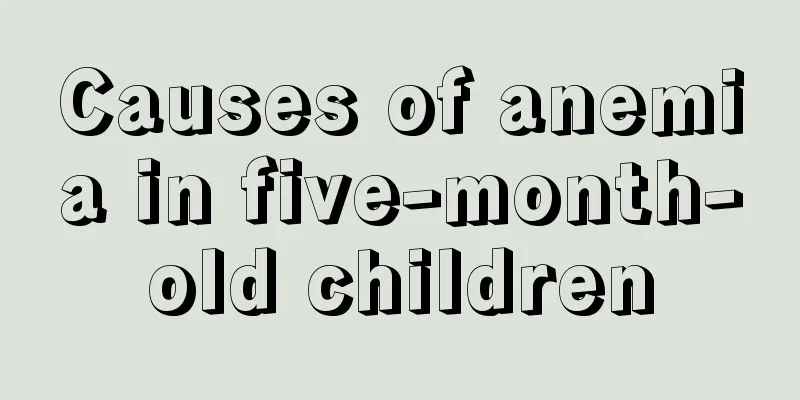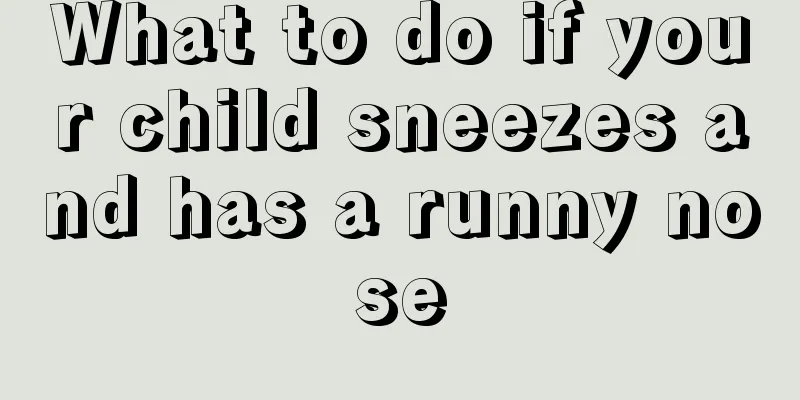Why do full-month babies always cry?

|
One-month-old babies generally like to cry. They will cry when they urinate, when they are hungry, when it is too hot or too cold, or when they are unwell, such as when they are prone to colic, when they have indigestion, or when they have eczema in summer. When a baby wants to sleep but can't sleep, he will cry and make a fuss. Different babies need different ways of comforting, and mothers can treat their babies in different ways according to their personalities.
Common reasons: hungry, wet diaper, too cold, too hot, etc. Behavioral manifestations: Babies will most likely express their physical needs by crying. Some babies may choose to cry loudly, while others may cry softly, looking aggrieved; or they may become restless and twist around. Tips: 1. The mother should first think about whether it is time for the baby to feed again, or gently pat the baby's cheek with her fingers to see if he is eager to find the mother's breast; at the same time, check whether the diaper needs to be changed.Tips: 1. The mother should first think about whether it is time for the baby to feed again, or gently pat the baby's cheek with her fingers to see if he is eager to find the mother's breast; at the same time, check whether the diaper needs to be changed. 2. If the problem is a wet diaper or hunger, the baby will usually stop crying once the diaper is changed or the baby is fed. 3. In addition, feel the baby's hands and feet to see if they are too cold, and add more clothes if necessary; if the neck and hair sweat, the baby may be irritable because he is too hot. If you eliminate the baby's physiological needs, the baby will usually show a satisfied and happy expression. As long as the parents continue to talk to him and hug him, the problem will be solved quickly.
Common causes: colic, colds, itchy skin, diaper rash, thrush, teething, etc. Behavioral manifestations: If the baby cries at a certain time every day, and may stretch out his legs while crying, and the baby is not yet 3 months old, it will be suspected that he has colic. In addition, when the baby has a cold or other physical illness, the baby may cry and fall asleep or cry continuously, and may also have other symptoms of physical discomfort. Parents can first detect the cause from the appearance. |
<<: One-month-old baby's arm suppuration after vaccination
>>: Seven-month-old baby's ears are itchy and he keeps scratching them
Recommend
Correct way to extract teeth for children
Most children have damaged teeth because their te...
How are congenital cochlear malformations treated?
Congenital cochlear malformation is a disease cau...
What foods cause precocious puberty in children?
Most children experience precocious puberty due t...
Can children drink corn silk water?
Everyone loves to eat corn, but many people will ...
Is it normal for baby to have brown spots on his face?
Babies' skin is smooth, but it may develop sk...
What should I do if my child has phlegm in his throat?
Whenever the seasons change, many children will h...
Does anesthesia affect children's intelligence?
Anesthesia during surgery is very important for t...
Why does a child have a fever, convulsions and rolling eyes?
Generally, family members are most concerned abou...
The child's poop is too hard
The excess and unnecessary substances in the huma...
Can a five month old baby sit?
When a baby is born, his bones are relatively fra...
Nursing measures for infantile labia adhesion
Every child is born healthy, but many babies will...
Will a newborn fall asleep when hungry?
Newborns have a relatively small appetite and onl...
How to control the water temperature for baby bathing
The physical health of the baby is an issue that ...
Is meningitis serious in children?
What is meningitis? Patients often ask such quest...
What should children eat to grow taller?
Some parents are very worried about their childre...









